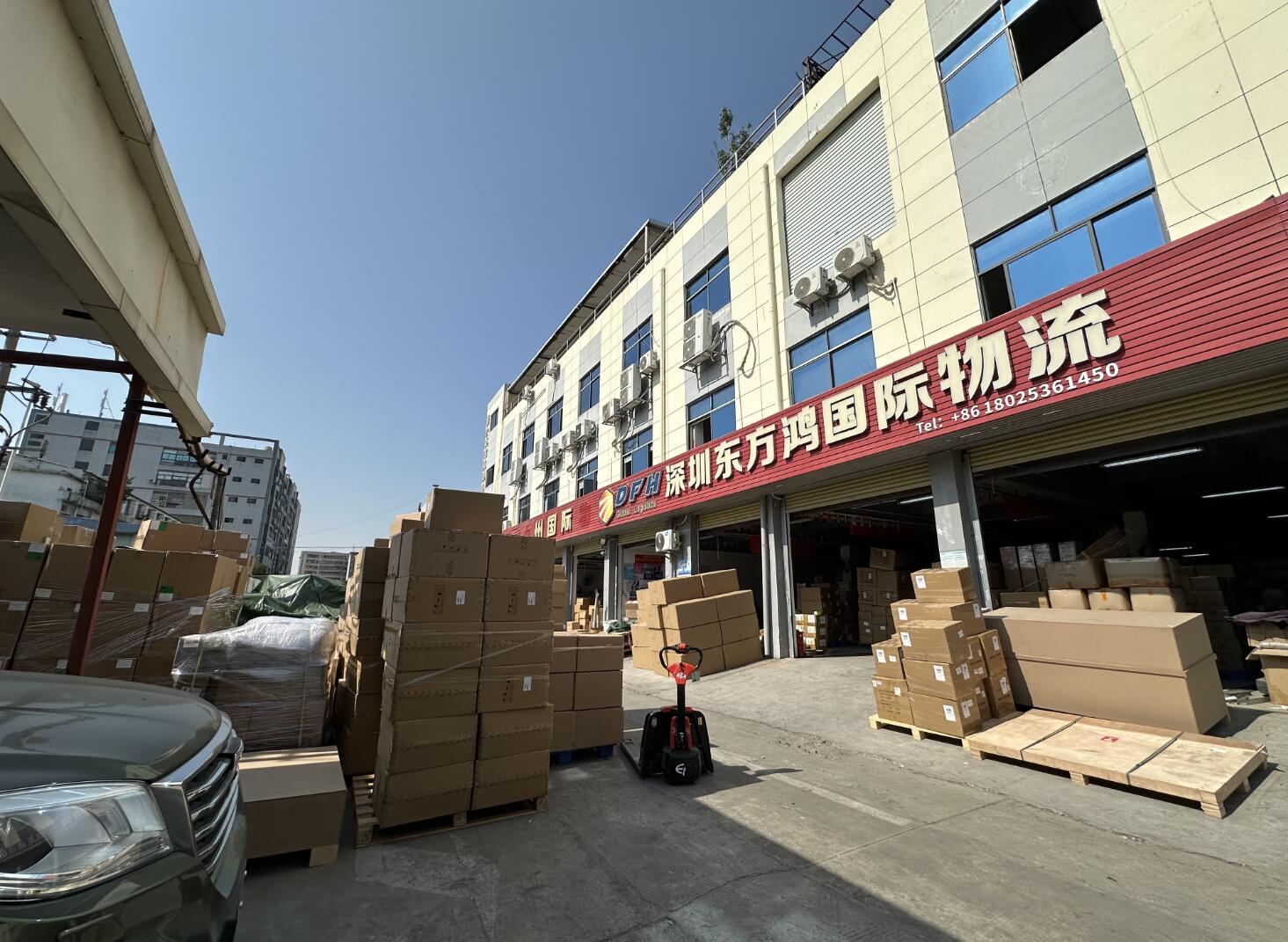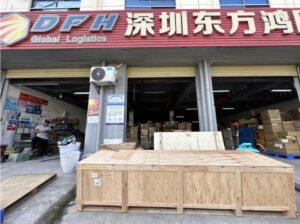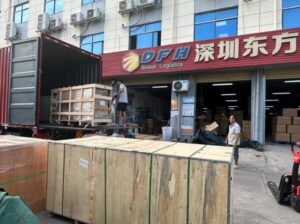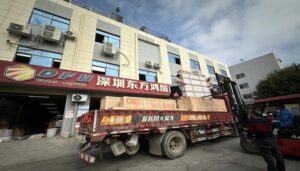One of the most common frustrations I hear from Bulgarian importers is this: “Buying from Alibaba is easy, but shipping the goods to Bulgaria always turns into a headache.”
I understand this pain very well. As the co-founder of DFH Logistics, I’ve spent over 12 years helping European businesses overcome issues like unclear shipping costs, customs delays, and unexpected VAT charges.
In this guide, I’ll break down everything you need to know — from shipping methods and costs, to VAT (20%), customs clearance, and DDP solutions. My goal is to help you import from Alibaba to Bulgaria without hidden costs or unnecessary delays.
Why buy from Alibaba and ship to Bulgaria?

Many Bulgarian businesses tell me the same story: “Local suppliers are too expensive, and the product variety is limited.”
This is exactly why so many importers turn to Alibaba. By sourcing directly from Chinese factories, you bypass multiple middlemen and get access to a far wider selection of products at competitive prices.
From what I’ve seen with my clients, the biggest advantages for Bulgarian importers include:
- Lower costs: Direct factory pricing helps you compete with EU distributors.
- Broader product range: Electronics, textiles, furniture, and auto parts are among the top categories.
- Flexible supply: Start with a small trial order and scale up to full containers as your business grows.
- Regional opportunity: Bulgaria’s location in Southeast Europe makes it easy to distribute products to neighboring markets.
And with a 20% VAT rate and rising e-commerce demand, importing from Alibaba has become one of the most effective ways for Bulgarian companies to expand profit margins and stay competitive.
How does shipping work on Alibaba, and should your supplier handle it?
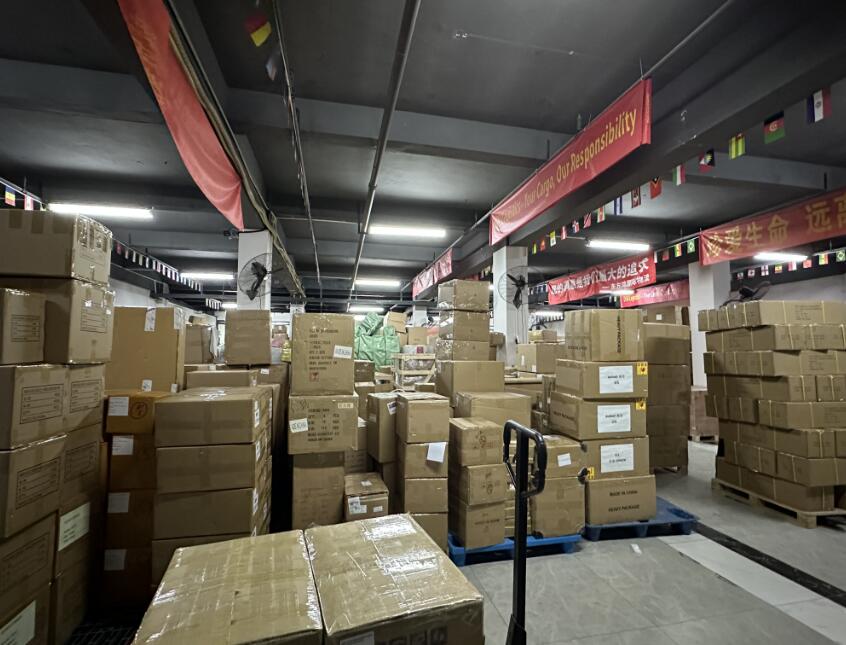
One of the biggest mistakes I see Bulgarian importers make is assuming that their Alibaba supplier will handle shipping smoothly. On the surface, it sounds convenient — but in reality, it often leads to higher costs, customs delays, and surprises with Bulgaria’s 20% VAT.
Option 1: Supplier-arranged shipping
- Many suppliers offer to send goods via Cainiao, DHL, FedEx, or UPS.
- For samples or very small parcels, this is usually fine.
But here’s the problem:
- Costs rise quickly once the shipment is heavy or bulky.
- Suppliers usually pick the cheapest forwarder, not the most reliable.
- They rarely take responsibility for customs clearance or VAT in Bulgaria.
- For sea shipments, goods often land in Varna, Burgas, or Piraeus (Greece) before trucking to Bulgaria — a process suppliers don’t always manage well.
Option 2: Using your own freight forwarder
- You let your supplier prepare the goods and deliver them to your chosen forwarder’s warehouse in China.
- A professional forwarder like DFH Logistics then arranges:
- Pickup and consolidation from multiple suppliers
- Export customs in China
- International transport by air (Sofia Airport), sea (Varna/Burgas/Piraeus/Constanta), rail, or truck
- Import customs clearance in Bulgaria with duty & 20% VAT
- Final delivery to your warehouse, shop, or Amazon FBA
Advantages:
- Full control over costs, routes, and timelines
- Transparent pricing, no hidden surprises
- Smooth customs clearance and VAT handling
- Flexibility to combine shipments and save on freight
Which option is better?
- For samples or test orders, letting the supplier ship may be fine.
- For serious business shipments, always use your own freight forwarder. This way, you avoid unnecessary delays and ensure compliance with Bulgarian customs and VAT requirements.
What are the shipping methods from Alibaba to Bulgaria?
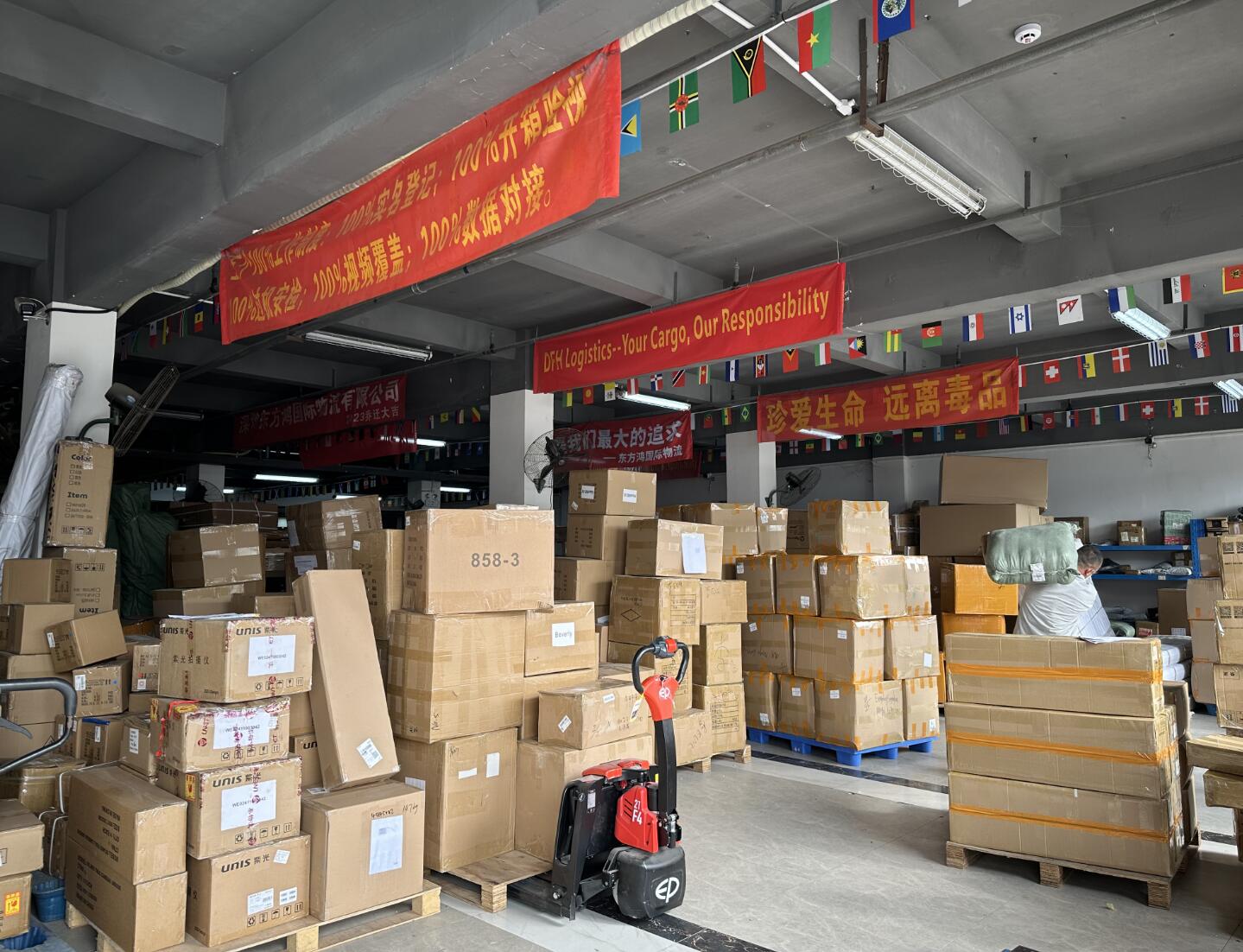
When importing from Alibaba to Bulgaria, there are several shipping methods to choose from. The best option depends on your budget, cargo size, and urgency.
1. Express Courier (DHL, FedEx, UPS)
- Transit time: 3–7 business days
- Best for: Samples or small parcels under 100 kg
- Advantages: Fast and reliable door-to-door delivery
- Limitations: Costs increase rapidly for bulky goods
2. Air Freight
- Transit time: 5–10 business days (China → Sofia Airport)
- Best for: Shipments of 100–500 kg, urgent or valuable cargo
- Advantages: Faster than sea and more economical than express
- Limitations: Still more expensive than sea or rail for large loads
3. Sea Freight (LCL & FCL)
- Transit time: 35–45 days (via Varna, Burgas, Piraeus, or Constanta + trucking to Bulgaria)
- LCL (Less than Container Load): Good for 1–15 CBM
- FCL (Full Container Load): Best for 20ft/40ft containers above 15–20 CBM
- Advantages: Lowest cost per unit for large shipments
- Limitations: Slower transit time, requires port handling & trucking
4. Railway Freight
- Transit time: 20–28 days (China → Central Europe → Bulgaria by truck/rail link)
- Best for: Medium shipments where speed and cost must be balanced
- Advantages: Faster than sea, cheaper than air
- Limitations: Limited space and not suitable for all goods
5. Truck Freight
- Transit time: 18–22 days (direct overland from China to Bulgaria)
- Best for: Flexible, door-to-door delivery for mid-sized shipments
- Advantages: Avoids seaport congestion, direct to consignee
- Limitations: Higher cost than sea, slower than air
6. DDP Shipping (Delivered Duty Paid)
- Available via: Air, sea, rail, and truck
- Transit time: 7–12 days (Air DDP), 35–45 days (Sea DDP), 20–28 days (Rail DDP), 18–22 days (Truck DDP)
- Advantages: All-inclusive solution — freight, customs clearance, duty, and Bulgaria’s 20% VAT
- Best for: Importers without EORI/VAT, e-commerce sellers, and small businesses
Comparison Table: Shipping from Alibaba to Bulgaria
| Method | Transit Time | Cost Level | Best For |
|---|---|---|---|
| Express Courier | 3–7 days | $$$$ | Urgent small parcels (<100 kg) |
| Air Freight | 5–10 days | $$$ | 100–500 kg urgent shipments |
| Sea Freight LCL | 35–45 days | $ | 1–15 CBM shipments (via Varna/Burgas/Piraeus) |
| Sea Freight FCL | 35–45 days | $ | Full containers (>20 CBM) |
| Railway Freight | 20–28 days | $$ | Medium cargo needing faster delivery |
| Truck Freight | 18–22 days | $$ | Door-to-door mid-sized loads |
| DDP Shipping | 7–45 days (varies) | $$–$$$ | Importers without EORI/VAT, FBA sellers |
What is DDP shipping from Alibaba to Bulgaria?
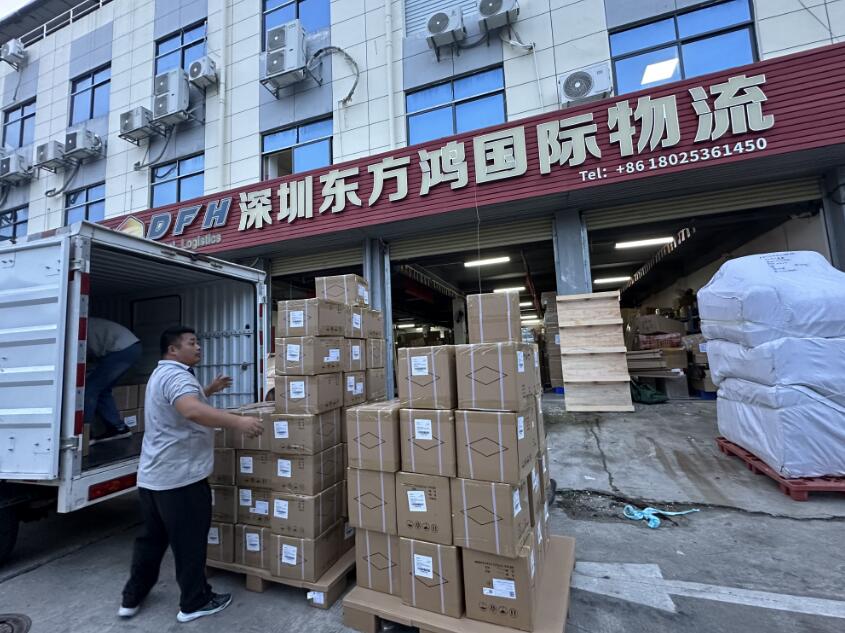
DDP (Delivered Duty Paid) is one of the most convenient ways to ship from Alibaba to Bulgaria. With DDP, your freight forwarder takes care of the entire process — including customs clearance and paying Bulgaria’s 20% VAT — so you receive your goods directly without dealing with extra paperwork.
How DDP shipping works
- Pickup from your supplier’s factory or warehouse in China.
- Export customs clearance in China.
- International shipping by air (Sofia Airport), sea (Varna/Burgas/Piraeus/Constanta + truck), railway, or truck freight.
- Import customs clearance in Bulgaria, including duties and 20% VAT.
- Final delivery to your warehouse, store, or Amazon FBA center.
Benefits of DDP for Bulgarian importers
- No EORI or VAT registration required — the forwarder acts as the importer.
- All-inclusive pricing — freight, duties, and VAT are included in one fixed quote.
- Door-to-door service — from China to your address in Bulgaria.
- Less risk of delays — forwarder manages documents, HS codes, and compliance.
When to choose DDP
- If you are a new importer without experience in customs procedures.
- If you sell on Amazon FBA EU or other platforms and need reliable delivery.
- If you prefer a fixed, predictable shipping cost with no surprise charges.
Note: Not all DDP services on Alibaba are reliable. Some suppliers under-declare goods to lower costs, which may result in fines or delays at Bulgarian customs. To avoid this risk, work with a professional forwarder like DFH Logistics, who ensures compliance and smooth delivery.
How much does it cost to ship from Alibaba to Bulgaria?
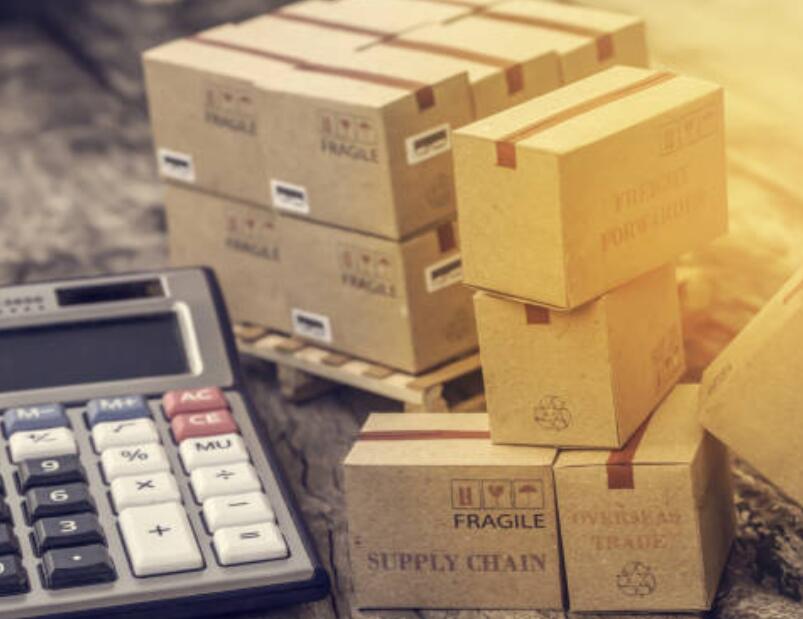
The cost of shipping from Alibaba to Bulgaria depends on the transport method, shipment size, and whether you choose a DDP all-inclusive solution. Since Bulgaria’s ports are smaller than Western European hubs, many sea shipments also transit via Piraeus (Greece) or Constanta (Romania) before trucking into Bulgaria.
Key factors that influence cost
- Transport mode: Express, air, sea, rail, or truck
- Weight & volume: Air freight is billed by chargeable weight (kg); sea freight by CBM or container size
- Destination in Bulgaria: Trucking from Varna/Burgas/Piraeus/Constanta to inland cities adds extra costs
- Customs duties & VAT: Bulgaria applies 20% VAT on imports
Average shipping costs (China → Bulgaria)
| Shipping Method | Transit Time | Cost Range (USD) | Best For |
|---|---|---|---|
| Express Courier | 3–7 days | $6 – $10 per kg | Urgent small parcels (<100 kg) |
| Air Freight | 5–10 days | $4 – $7 per kg (100–500 kg) | Time-sensitive medium shipments |
| Sea Freight LCL | 35–45 days | $1.8 – $4.5 per kg | 1–15 CBM shipments (via Varna/Burgas/Piraeus) |
| Sea Freight FCL | 35–45 days | $1,200 – $2,600 per 20ft FCL | Large containerized shipments |
| Railway Freight | 20–28 days | $2 – $4 per kg | Medium shipments needing balance |
| Truck Freight | 18–22 days | $2.5 – $4.5 per kg | Door-to-door EU inland delivery |
| DDP Shipping | 7–45 days (varies) | All-inclusive (freight + duty + 20% VAT) | Importers without EORI/VAT, FBA sellers |
Tips:
For bulky cargo, sea freight is the most economical. But for high-value or time-sensitive goods, air freight into Sofia Airport is often the better choice. DFH Logistics also offers DDP shipping, so you pay one all-inclusive price with no VAT or customs surprises.
What is the cheapest way to ship from Alibaba to Bulgaria?
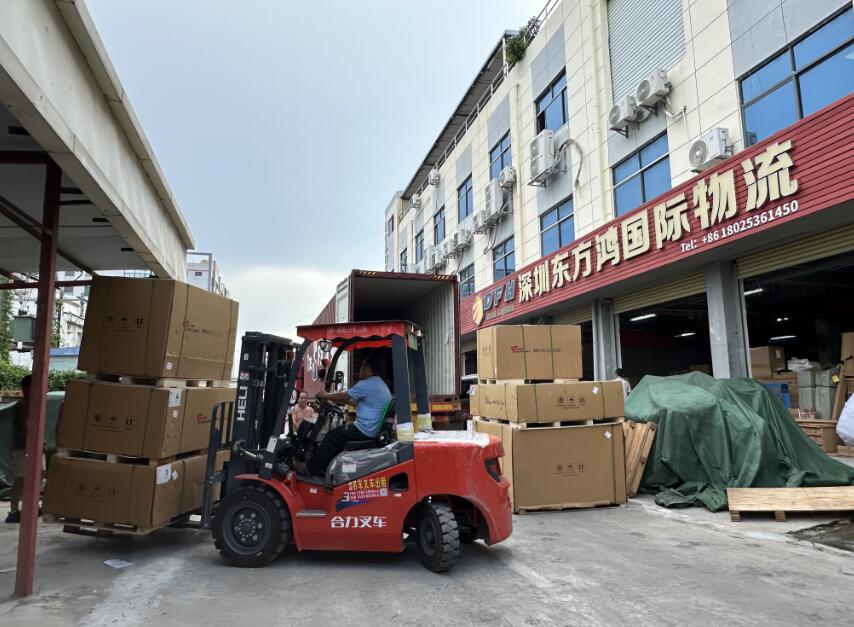
From my 12+ years of experience helping clients in Bulgaria, I can tell you that the cheapest way to ship from Alibaba always depends on two things: the size of your shipment and how fast you need it.
1. Sea Freight (LCL & FCL)
- For large shipments above 20 CBM, FCL (Full Container Load) offers the lowest cost per unit.
- For 1–15 CBM shipments, LCL (Less than Container Load) is a practical choice, since you share container space with other buyers.
- Most containers arrive at Varna, Burgas, Piraeus (Greece), or Constanta (Romania), then move into Bulgaria by truck.
2. Railway Freight
- Transit time is usually 30–35 days, much faster than sea.
- Cost is higher than sea but significantly lower than air.
- I often recommend rail for mid-sized shipments when clients need to save time without paying air freight rates.
3. DDP Sea Freight
- For importers without EORI or VAT registration, I find DDP sea freight to be the most cost-effective option.
- The price covers freight, duties, and Bulgaria’s 20% VAT, so you don’t have to worry about surprise bills on arrival.
Many of my small business clients prefer this because it’s simple and predictable.
My cost-saving tips for you:
- Consolidate shipments: If you buy from multiple Alibaba suppliers, combine orders into one container to reduce per-unit costs.
- Avoid peak seasons: Rates always rise before Chinese New Year and during the Christmas rush.
- Use smarter packaging: Optimizing carton sizes and removing unnecessary volume can save you a lot on LCL charges.
- Compare modes: Sometimes paying a little more for rail instead of sea actually saves you money by reducing storage and cash flow pressure.
Do you need an EORI or VAT number to import from Alibaba to Bulgaria?
This is one of the first questions my Bulgarian clients usually ask me: “Do I need an EORI or VAT number to import from Alibaba?” The answer depends on how you ship your goods.
EORI (Economic Operators Registration and Identification)
- In the EU, every importer needs an EORI number to clear customs.
- Without it, your goods can’t officially enter Bulgaria.
- If you plan to import regularly, I always recommend registering for one — it’s straightforward and makes customs smoother.
VAT in Bulgaria
- Bulgaria applies a 20% VAT on imported goods.
- If you are VAT registered, you can reclaim this in your tax returns.
- If you are not registered, the 20% VAT becomes a direct cost, increasing your landed price.
When you don’t need EORI or VAT
- If you use DDP shipping, your freight forwarder (like us at DFH Logistics) acts as the official importer.
- We use our own EORI and VAT registration to clear your shipment.
- You receive your goods in Bulgaria with all taxes and duties already settled.
My advice:
- If you’re a new importer or small e-commerce seller, start with DDP shipping — it saves you the hassle of dealing with registrations.
- If you’re an established company, it’s worth getting your own EORI and VAT. This way you can reclaim the 20% VAT and have more control over your imports.
How is Bulgaria customs clearance handled when shipping from Alibaba?
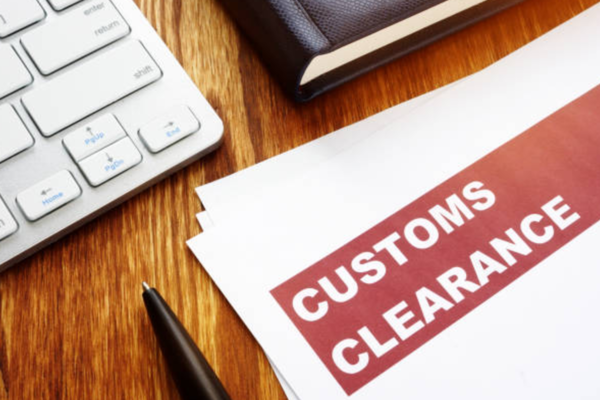
One of the most common challenges my Bulgarian clients face is customs clearance. Even if shipping goes smoothly from China, delays often happen at Bulgarian customs due to missing documents, wrong HS codes, or VAT issues. Let me walk you through how it actually works.
Where customs clearance happens
- Sea Freight: Shipments usually clear at Varna or Burgas. Some cargo also arrives via Piraeus (Greece) or Constanta (Romania) and is trucked into Bulgaria afterward.
- Air Freight: Clearance is done at Sofia International Airport (SOF).
- Rail & Truck Freight: Clearance happens at Bulgaria’s inland customs offices once the cargo arrives at the border.
Typical customs clearance steps
- Arrival notice — Carrier provides shipment details to Bulgarian Customs.
- Import declaration — Filed by the importer or freight forwarder with invoice, packing list, and HS codes.
- Duty & VAT calculation — Customs applies duty based on HS code + 20% VAT.
- Inspection (if required) — Goods like electronics, cosmetics, or textiles may need CE/REACH documentation.
- Release of goods — After duties and VAT are paid, cargo is released for delivery.
Common challenges I see
- Wrong HS codes → higher duties or unnecessary delays.
- Under-declared values → risk of fines or shipment seizure.
- Missing compliance certificates → especially for electronics, toys, cosmetics, or food-related products.
- Transit shipments → if goods enter via Greece or Romania, extra paperwork may be needed for re-entry into Bulgaria.
How I help my clients at DFH Logistics
- We prepare all documents in advance before cargo leaves China.
- Correctly classify HS codes to avoid overpaying duties.
- Manage DDP shipping, where we pay the 20% VAT and duties for you.
- Ensure goods meet EU standards (CE, RoHS, REACH) to avoid inspection delays.
Tip from me: Bulgarian customs can be strict with compliance. If your products need CE or REACH certification, always confirm with your supplier before shipping. My team at DFH Logistics can check documents for you to prevent clearance problems.
What are the prohibited and restricted items when shipping from Alibaba to Bulgaria?

One thing I always remind my Bulgarian clients is this: not everything you see on Alibaba can be shipped directly into Bulgaria. Some items are completely prohibited under EU law, while others are restricted and require extra documents or certifications.
Prohibited items (cannot be imported)
- Counterfeit products
- Weapons, explosives, and ammunition
- Drugs, narcotics, and controlled substances
- Hazardous or toxic chemicals
- Goods made from endangered species (CITES restricted)
Restricted items (require permits or certificates)
- Electronics and toys: Must carry CE marking and comply with RoHS/REACH.
- Cosmetics and skincare: Require EU Cosmetics Regulation compliance and safety certificates.
- Batteries, power banks, and lithium items: Need MSDS and transport approval.
- Food, beverages, and plants: Require sanitary or phytosanitary certificates.
- Medical devices and pharmaceuticals: Must be pre-approved under EU rules.
- Textiles and clothing: Need proper EU labeling (origin, fiber content, washing instructions).
Issues I’ve seen with clients
- Importing electronics without CE certificates → shipments stuck at customs.
- Suppliers undervaluing cosmetics or food → extra checks and fines.
- Buyers not aware of RoHS/REACH → unexpected compliance problems.
My advice
- Always confirm with your supplier that products meet EU standards.
- Ask for compliance documents (CE, RoHS, REACH, MSDS) before goods leave China.
- If you’re unsure, use DDP shipping — my team at DFH Logistics can handle customs clearance and make sure the right paperwork is in place.
Tip from me: Customs in Bulgaria, like in the rest of the EU, are especially strict with electronics, toys, cosmetics, and food. If you want to avoid delays, make compliance checks part of your buying process, not an afterthought.
How long does it take to ship from Alibaba to Bulgaria?
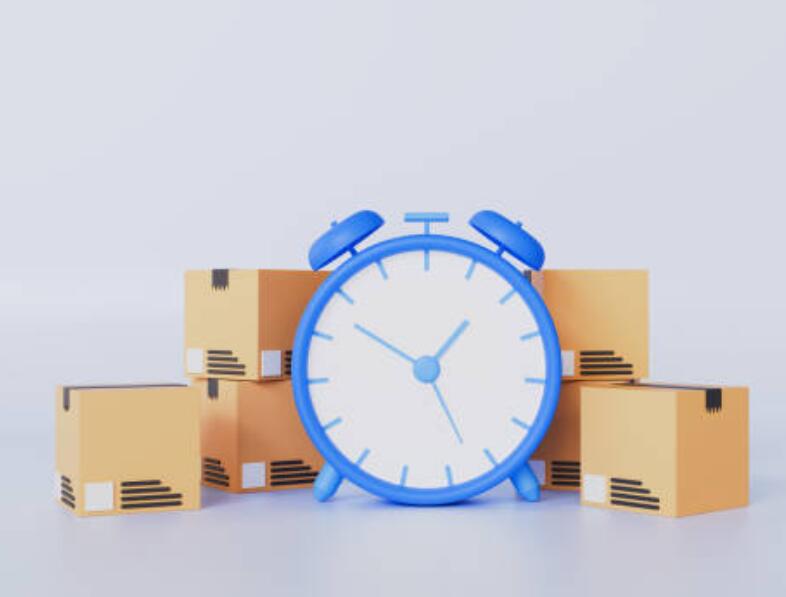
One of the first things my clients in Bulgaria ask me is: “How many days will it actually take to get my goods from China?” The truth is, delivery time depends on the shipping method, customs clearance, and whether the cargo comes directly or transits through another port.
Average transit times (China → Bulgaria)
- Express Courier (DHL, UPS, FedEx): 3–7 business days
- Air Freight: 2–5 business days (to Sofia Airport)
- Sea Freight (LCL/FCL): 35–45 days (via Varna, Burgas, Piraeus, or Constanta, plus trucking)
- Railway Freight: 30–35 days (China → Central Europe → Bulgaria by rail + truck)
- Truck Freight: 18–25 days (direct overland)
- DDP Shipping: 7–12 days (Air DDP), 35–45 days (Sea DDP), 30–35 days (Rail DDP), 18–25 days (Truck DDP)
Factors that affect delivery time
From my experience, these are the main reasons why shipments take longer than expected:
- Peak seasons: Chinese New Year and Christmas always bring delays.
- Customs clearance: Wrong HS codes or missing CE/REACH certificates can add days or even weeks.
- Port congestion: Piraeus and Constanta sometimes face heavy container backlogs.
- Final-mile delivery: Trucking goods inland to Sofia or other cities can add extra time.
Tip from me: If you need speed, I always recommend Express freight or air freight. If cost is your top priority, then sea freight is best — but make sure you plan ahead, especially around holidays.
What is the best shipping method from Alibaba to Bulgaria?
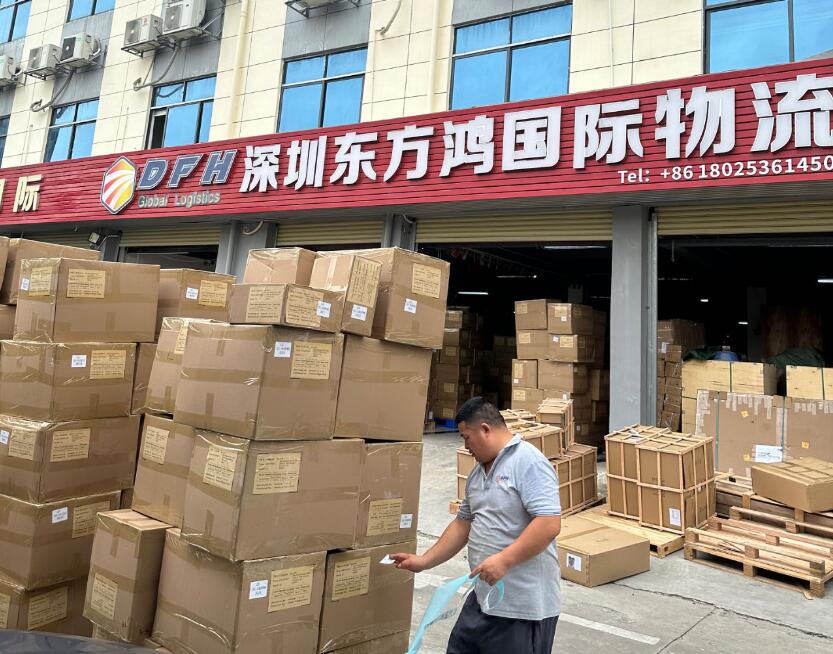
When my clients in Bulgaria ask me which shipping method is the best, my answer is always: “It depends on your shipment size, urgency, and import requirements.” There is no one-size-fits-all solution, but here’s how I guide my customers.
Best by shipment type
Small urgent shipments (<100 kg):
I recommend Express Courier (DHL, FedEx, UPS) — 3–7 days, simple door-to-door.Medium shipments (100–500 kg):
Air Freight to Sofia Airport (SOF) is faster and more cost-effective than express.Large shipments (>20 CBM):
Sea Freight (FCL) via Varna, Burgas, or Piraeus is the most economical choice.Balanced speed and cost:
Railway Freight (20–28 days) is a great middle ground between air and sea.For importers without EORI/VAT:
DDP Shipping (air, sea, rail, or truck) is the safest and most convenient option — all customs and VAT handled for you.
Quick decision guide
| Situation | Best Method |
|---|---|
| Samples or urgent small parcels | Express Courier |
| 100–500 kg, time-sensitive | Air Freight (Sofia) |
| Bulk shipments & containers | Sea Freight (FCL/LCL) |
| Balance between cost & time | Railway Freight |
| No EORI/VAT, want hassle-free import | DDP Shipping |
Why choose DFH Logistics for shipping from Alibaba to Bulgaria?

Over the years, I’ve worked with many Bulgarian importers who came to me after having bad experiences with other freight forwarders. The stories are always similar — hidden charges, poor communication, customs delays, and unexpected VAT bills.
At DFH Logistics, my goal is to solve these problems and make importing from Alibaba to Bulgaria as simple as possible.
Why my Bulgarian clients trust DFH Logistics
- End-to-end service: From pickup at your Chinese supplier to delivery in Sofia or any Bulgarian city.
- DDP expertise: We handle customs clearance, duties, and Bulgaria’s 20% VAT for you.
- Multiple shipping options: Express, air (Sofia), sea (Varna/Burgas/Piraeus), railway, and truck.
- Transparent pricing: No hidden charges, clear quotes tailored to your shipment.
- Free consolidation & warehousing: 30 days free storage in Shenzhen, plus supplier consolidation.
- EU compliance support: We check CE, RoHS, and REACH certificates to avoid customs issues.
- Amazon FBA support: We prepare, label, and deliver directly to Amazon warehouses across the EU.
The DFH difference
- Many importers told me they wasted money with unreliable agents before finding us.
- With DFH, they finally got on-time delivery, honest pricing, and responsive communication.
- Some of my Bulgarian clients say working with us saved them weeks of delays and thousands in unexpected costs.
In short:
I don’t just see DFH Logistics as a shipping provider — we are a strategic logistics partner in China, making sure your Alibaba imports to Bulgaria arrive safely, on time, and without stress.
Step by Step shipping process from Alibaba to Bulgaria?
When my Bulgarian clients ask me “How exactly does the shipping process work?” — I usually break it down into 9 clear steps.
Step 1 — Place your order on Alibaba
Confirm your supplier, negotiate Incoterms (EXW, FOB, CIF, or DDP), and collect documents (invoice & packing list).
Step 2 — Choose shipping method & forwarder
Decide between express, air, sea, rail, or truck. I always suggest comparing 2–3 options before booking.
Step 3 — Pickup & consolidation in China
We arrange pickup from your supplier(s), consolidate goods in our Shenzhen warehouse, and check packaging.
Step 4 — Export customs clearance in China
We handle the export declaration with HS codes and product value.
Step 5 — International transport
- Air Freight: To Sofia Airport (SOF)
- Sea Freight: To Varna/Burgas or via Piraeus/Constanta + truck
- Rail Freight: China → Central Europe → Bulgaria
- Truck Freight: Direct overland service
Step 6 — Import customs clearance in Bulgaria
We submit the import declaration, pay duty and 20% VAT, and handle any inspection if needed.
Step 7 — Compliance verification
We make sure goods meet EU standards (CE, RoHS, REACH) before clearance.
Step 8 — Documentation & VAT handling
We provide all customs and tax paperwork. If you’re VAT registered, you can reclaim the 20% VAT.
Step 9 — Final delivery
Cargo is delivered to your warehouse, store, or Amazon FBA fulfillment center in Bulgaria.
Who does what?
| Task | Supplier | DFH Logistics | Importer |
|---|---|---|---|
| Product & order confirmation | ✅ | — | ✅ |
| Packaging & labeling | ✅ | ✅ | — |
| Pickup & consolidation | — | ✅ | — |
| Export customs (China) | — | ✅ | — |
| International transport | — | ✅ | — |
| Import customs (Bulgaria) | — | ✅ (DDP) | ✅ (non-DDP) |
| Duty & 20% VAT payment | — | ✅ (DDP) | ✅ (non-DDP) |
| Final delivery in Bulgaria | — | ✅ | — |
| VAT reclaim paperwork (if registered) | — | — | ✅ |
Conclusion
From what I’ve seen over the years, importing from Alibaba to Bulgaria is full of opportunities — but only if you choose the right shipping strategy. Bulgaria’s Varna and Burgas ports, its proximity to Piraeus and Constanta, and Sofia Airport (SOF) give you multiple entry points. The key is knowing when to use air, sea, rail, or truck — and how to handle Bulgaria’s 20% VAT smoothly.
- For small urgent shipments, Express Courier is the fastest.
- For medium-sized cargo, Air Freight to Sofia is the best balance of speed and cost.
- For bulk orders, Sea Freight via Varna, Burgas, or Piraeus remains the most economical.
- For importers without EORI/VAT, DDP shipping is the safest and simplest option.
At DFH Logistics, I’ve helped many Bulgarian importers avoid customs delays, hidden costs, and VAT headaches. My team manages everything from pickup in China to final delivery in Bulgaria — including export clearance, international shipping, customs, and VAT payment. With over 12 years of experience, we make sure your Alibaba imports arrive on time, compliant, and at the best possible cost.
Ready to ship from Alibaba to Bulgaria?
Contact DFH Logistics today for a tailored shipping quote. Let us take care of the logistics, so you can focus on growing your business.

